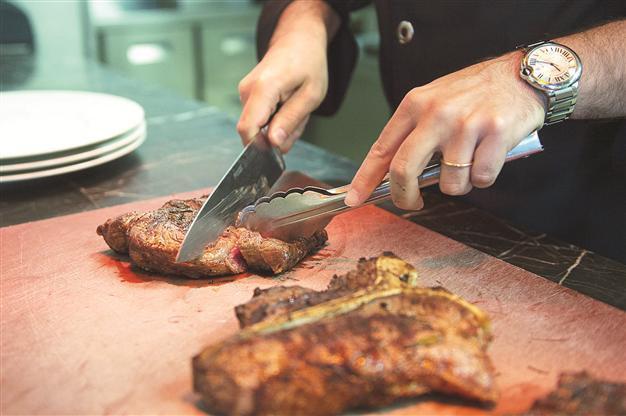High meat prices, planned imports ruffle feathers in Turkey
ISTANBUL

DHA photo
Meat prices in Turkey have been steadily increasing in recent years due to supply problems and merchants’ speculative sales moves, according to sector representatives.
In a bid to maintain food price stability, as prices rise and push inflation up, the government has announced a number of measures, with the state-run Meat and Milk Board (ESK) now being forced to import high amounts of meat and to sell them at discounted prices. Such moves have been met with different reactions among sector players.
The ESK launched a tender to buy 3,200 tons of frozen meat on Aug. 5, announcing that the purchases would continue until the Feast of Sacrifice holiday on Sept. 24. The ESK plans to import a total of 19,000 tons of meat from the EU in the coming days.
The Butchers Federation has stated that the price cuts in meat the ESK and the planned meat imports from the EU will harm butchers’ income.
“The state creates an unfair competition environment by itself. As butchers, we cannot endure the highly discounted meat price of the state-run ESK,” said head of the federation, Fazlı Yalçındağ, quoted by daily Hürriyet on Aug. 12.
Bendevi Palandöken, the head of the Confederation of Turkish Craftsmen and Tradesmen (TESK), said last week that the real reason behind the price hike was speculation before the Feast of Sacrifice, also known as Eid al-Adha.
“To prevent the hike in meat prices, small cattle raisers should be supported,” he said, citing past experiences that said the rise in demand did not result in price hikes.
Several food associations support the rise in imports, saying meat consumption in Turkey is only one-third of the European average.
The head of the Federation of Food and Drink Industry Association of Turkey (TGDF), Şemsi Kopuz, said any attempts to lower prices are of great importance as meat consumption is still very low in Turkey.
“In the long-run, much more comprehensive steps must be taken, such as conducting detailed statistical works on agricultural production, increasing the number of sheep and goats, and creating policies to encourage meat consumption. State incentives should also be set in five-year periods, and unhealthy slaughter houses should be closed down,” Kopuz said in a press release on the association’s website.
